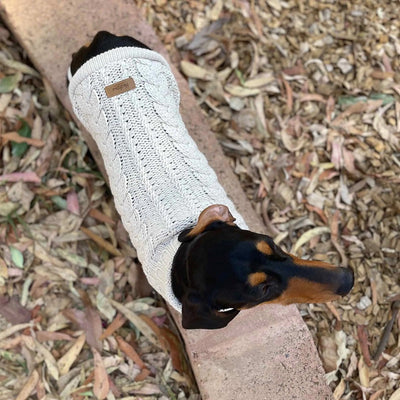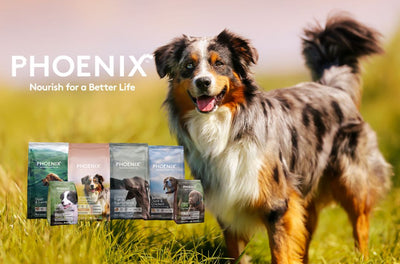
Are you considering getting a guinea pig as a pet? Or maybe you already have one and want to make sure you're providing the best nutrition for their health and happiness? Look no further! In this comprehensive guide, we will delve into the world of guinea pig nutrition, exploring their dietary needs and the recommended diet to keep them thriving.
Guinea pigs are herbivores, which means their diet is primarily plant-based. However, it's important to understand which foods are safe and beneficial for them, as well as which ones should be avoided. We will cover all aspects of their nutritional requirements, including the importance of fresh hay, vegetables, fruits, and specially formulated guinea pig pellets. Whether you're wondering about portion sizes, introducing new foods, or dealing with special dietary needs, we've got you covered.
Understanding what guinea pigs eat is fundamental to providing them with a healthy, balanced diet. Join us as we explore the diverse world of guinea pig nutrition, and gain the knowledge you need to keep your furry friend happy and well-nourished.
So, let's get started on this exciting culinary journey with your little guinea pig companion!
Understanding the nutritional needs of guinea pigs
 Guinea pigs have specific nutritional needs that must be met to ensure their overall health and well-being. Understanding these needs is crucial for providing them with a balanced diet.
Guinea pigs have specific nutritional needs that must be met to ensure their overall health and well-being. Understanding these needs is crucial for providing them with a balanced diet.
One of the most important aspects of a guinea pig's diet is the presence of vitamin C. Unlike humans and some other animals, guinea pigs cannot produce their own vitamin C. Therefore, they rely on their diet to fulfill this essential requirement. A deficiency in vitamin C can lead to scurvy and other health issues, so it's crucial to provide them with foods rich in this vital nutrient.
In addition to vitamin C, guinea pigs require a variety of other nutrients to support their growth and development. These include fiber, protein, calcium, and phosphorus. While some of these nutrients can be found in fresh hay and vegetables, others are commonly found in specially formulated guinea pig pellets. A well-rounded diet that incorporates all these essential nutrients is key to ensuring your guinea pig's optimal health.
It's also important to note that guinea pigs have sensitive digestive systems, and sudden changes in their diet can lead to gastrointestinal issues. Therefore, it's best to introduce new foods gradually and monitor their response before incorporating them into their regular diet. By understanding their nutritional needs and being mindful of their digestive sensitivities, you can provide your guinea pig with a healthy and balanced diet that promotes their overall well-being.
Essential nutrients for guinea pigs
Guinea pigs have specific nutritional requirements that must be met to ensure their overall health and well-being. It's crucial to provide them with a diet that is rich in essential nutrients. These nutrients include:
1. Vitamin C: Guinea pigs cannot produce their own vitamin C, so it's important to provide them with a diet that is high in this nutrient. Vitamin C plays a vital role in their immune system and overall health. Fresh fruits and vegetables are excellent sources of vitamin C for guinea pigs.
2. Fiber: Fiber is essential for proper digestion and helps prevent digestive issues such as diarrhea and bloating. The main source of fiber in a guinea pig's diet is hay, which should be available to them at all times.
3. Protein: Guinea pigs require a moderate amount of protein in their diet to support growth and muscle development. Good sources of protein for guinea pigs include fresh vegetables, hay, and specially formulated guinea pig pellets.
Providing a balanced diet that includes these essential nutrients is crucial for the health and well-being of your guinea pig. Now, let's dive into the specific foods that should be included in their diet.
Hay: The foundation of a guinea pig's diet
 Hay is an essential part of a guinea pig's diet and should make up the majority of their food intake. It provides the necessary fiber for healthy digestion and helps wear down their constantly growing teeth. There are several types of hay that are suitable for guinea pigs, including timothy hay, orchard grass, and meadow hay.
Hay is an essential part of a guinea pig's diet and should make up the majority of their food intake. It provides the necessary fiber for healthy digestion and helps wear down their constantly growing teeth. There are several types of hay that are suitable for guinea pigs, including timothy hay, orchard grass, and meadow hay.
It's important to choose high-quality hay that is fresh, free from dust or mold, and has a nice green colour. Avoid hay that appears yellow or brown, as it may be of lower quality. Additionally, make sure to store hay in a cool, dry place to maintain its freshness and nutritional value.
Guinea pigs should have access to hay at all times. You can provide it in a hay rack or place it directly in their enclosure. Remember to replenish the hay regularly to ensure they always have fresh hay available. We recommend feeding hay in a hay rack or hay ball. Along with hay, guinea pigs should also be given fresh vegetables and fruits.
rack or place it directly in their enclosure. Remember to replenish the hay regularly to ensure they always have fresh hay available. We recommend feeding hay in a hay rack or hay ball. Along with hay, guinea pigs should also be given fresh vegetables and fruits.
Fresh vegetables and fruits that are safe for guinea pigs to eat
 Fresh vegetables and fruits are an important part of a guinea pig's diet as they provide additional vitamins, minerals, and hydration. However, not all vegetables and fruits are safe for guinea pigs to eat. Some may be harmful or cause digestive issues. Here are some safe options to include in their diet:
Fresh vegetables and fruits are an important part of a guinea pig's diet as they provide additional vitamins, minerals, and hydration. However, not all vegetables and fruits are safe for guinea pigs to eat. Some may be harmful or cause digestive issues. Here are some safe options to include in their diet:
1. Leafy greens: Include a variety of leafy greens such as romaine lettuce, spinach, kale, and parsley. These provide important vitamins and minerals.
2. Bell peppers: Bell peppers are a great source of vitamin C and add a splash of colour to your guinea pig's diet. Make sure to remove the seeds and stem before feeding.
3. Cucumbers: Cucumbers are hydrating and low in calories, making them a refreshing treat for your guinea pig. Slice them into small pieces for easy consumption.
When introducing new vegetables and fruits to your guinea pig's diet, do so gradually to avoid any digestive upsets. Start with small portions and observe how your guinea pig reacts. If there are no negative effects, you can gradually increase the variety and quantity of fresh foods.
Remember to wash all vegetables and fruits thoroughly before feeding them to your guinea pig. Remove any pesticides or dirt that may be present on the surface. Additionally, it's important to limit the amount of fruits given to guinea pigs due to their high sugar content. Stick to small portions and opt for fruits with lower sugar content, such as berries.
Pellets: Choosing the right guinea pig food
In addition to hay and fresh vegetables, guinea pigs can be fed specially formulated guinea pig pellets. These pellets provide a concentrated source of nutrients and are designed to meet the specific dietary needs of guinea pigs. When choosing pellets for your guinea pig, look for ones that are high in fiber, low in fat, and contain a good balance of vitamins and minerals. Avoid pellets that are high in fillers or added sugars.
It's important to note that pellets should not be the main component of a guinea pig's diet. They should only make up a small portion of their overall food intake. Hay and fresh vegetables should always be the main focus, with pellets serving as a supplementary source of nutrients.
When feeding pellets, make sure to measure the appropriate portion size according to your guinea pig's age and weight. Overfeeding pellets can lead to obesity and other health issues. Always provide fresh water alongside pellets to ensure your guinea pig stays hydrated.
Water: The importance of hydration for guinea pigs
Water is essential for guinea pigs to stay hydrated and maintain their overall health. It's important to provide clean, fresh water at all times. Guinea pigs should have access to a water bottle or a shallow dish filled with water. We recommend adding vitamin C tablets to your guinea pigs water bottle to ensure they always have this vitamin available.
Check the water supply regularly to ensure it is clean and free from debris. Change the water daily to prevent bacteria or algae growth. Additionally, monitor your guinea pig's water intake and contact a veterinarian if you notice any significant changes, such as increased or decreased drinking.
Treats for guinea pigs: What to give and what to avoid
 Guinea pigs can enjoy occasional treats as part of their diet. Treats can be used for training, bonding, or simply as a special reward. However, it's important to choose treats that are safe and suitable for guinea pigs. Here are some safe treat options:
Guinea pigs can enjoy occasional treats as part of their diet. Treats can be used for training, bonding, or simply as a special reward. However, it's important to choose treats that are safe and suitable for guinea pigs. Here are some safe treat options:
1. Small pieces of fruit: Offer small portions of safe fruits such as apples, strawberries, or melons as an occasional treat. Remember to remove any seeds or pits.
2. Herbs: Guinea pigs enjoy the taste of fresh herbs such as basil, cilantro, and mint. These can be given in small amounts as a flavourful treat.
3. Commercial guinea pig treats: There are a variety of commercial treats available specifically for guinea pigs. These treats are formulated to meet their nutritional needs and can be given in moderation.
Avoid giving treats that are high in sugar, salt, or fat, as they can be harmful to guinea pigs. Additionally, avoid giving treats that are meant for other animals, as they may contain ingredients that are toxic to guinea pigs.
Feeding schedule and portion control for guinea pigs
Establishing a feeding schedule and practicing portion control is essential to maintain a healthy weight for your guinea pig. Here are some guidelines to follow:
1. Hay: Provide unlimited access to hay at all times. Guinea pigs should be able to graze on hay throughout the day.
2. Fresh vegetables: Offer a variety of fresh vegetables once or twice a day. Start with small portions and increase gradually. Remove any uneaten vegetables after a few hours to prevent spoilage.
3. Pellets: Feed a small portion of pellets once a day. Measure the appropriate amount according to your guinea pig's age and weight.
4. Treats: Give treats sparingly, no more than once or twice a week. Remember to keep portion sizes small.
Always monitor your guinea pig's weight and adjust their food intake accordingly. If you notice any significant weight gain or loss, consult a veterinarian for guidance.
Providing a balanced and healthy diet for your guinea pig
Understanding what guinea pigs eat is crucial for providing them with a healthy, balanced diet. Remember that hay should be the foundation of their diet, supplemented with fresh vegetables, fruits, and specially formulated guinea pig pellets. Ensure they have access to clean, fresh water at all times and offer occasional treats in moderation.
By following these guidelines and providing a varied and nutritious diet, you can ensure the health and happiness of your guinea pig. Remember to consult a veterinarian if you have any specific concerns or questions about your guinea pig's diet. Enjoy this culinary journey with your furry friend, and watch them thrive on their well-balanced diet!
© weknowpets 2024







